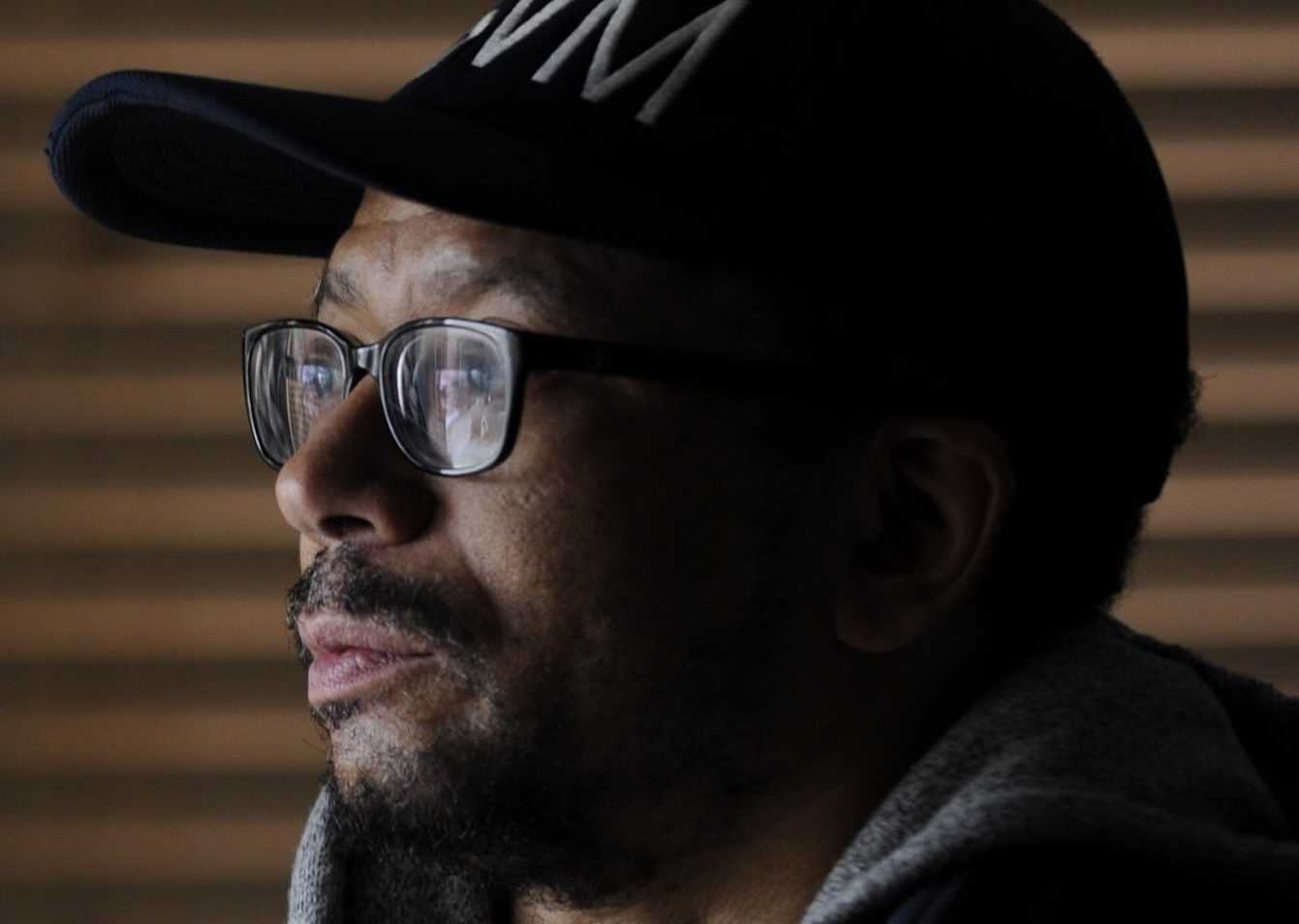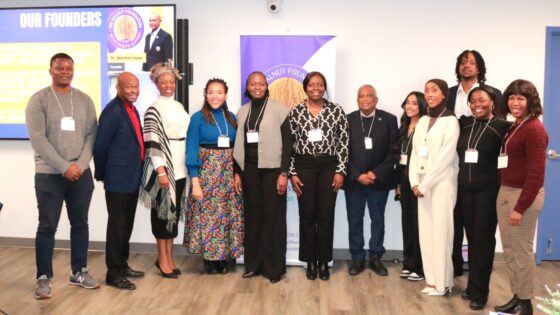on
BY PAUL JUNOR & SIMONE J. SMITH
“Saying goodbye to a hero, a staple, a confidant who did so much for so many is never easy. Louis March (Uncle Louis) stood as a beacon of strength and compassion, his unwavering dedication touching countless lives. His impact, felt across generations, will leave an indelible mark on all who had the privilege to know him. As we bid farewell, we honour his legacy, cherishing the memories and lessons imparted. Though his physical presence may be gone, his spirit and contributions will forever resonate within our hearts and communities.” Grant & Trish Browning (Founders, Toronto Caribbean Newspaper)
The untimely passing of highly respected Canadian community champion Louis March on Saturday, July 20th, 2024, has been deeply felt by many in the Black, African and Canadian diaspora. For over 40 years, he served in multiple capacities and roles to ensure that: educational equity, social and justice, as well as human rights were respected. His work as a: community and youth developer, mentor, advocate and activist have garnered widespread attention not just in Canada, but internationally.
His rise to the top of community leadership started with the Black Youth Community Action Project (BYCAP), then to the African Canadian Heritage Association (ACHA), then to the Black Action Defence Committee (BADC) and the Zero Gun Violence Movement (ZGVM).
Louis March was born in Jamaica, and he migrated to Canada with his mother. He graduated from Midland Avenue Collegiate Institute and completed tertiary studies at Toronto Metropolitan University graduating from: the Public Administration and Governance degree program, and the Caribbean Studies certificate program at the Chang School. He also completed a Business Management program at George Brown College.
He participated in many diverse youth engagement and mentorship projects while being involved at the board level with community organizations and Advisory Committees. He spent the summer of 2015 performing volunteer work in Tema, Ghana.
He often spoke about his early days with the BYCAP (where he served as President), which was the youth chapter of the United Negro Improvement Association (UNIA) started by Marcus Garvey in 1914. “Many times, Dudley Laws had problems with youth issues and would come to me. We will work through the issues. We have not done a good job talking about BYCAP,” stated Louis.
Louis served as Communication Directors of the ACHA for many years and volunteered with BADC after it was founded in 1988 by: the Dudley Laws, Charles Roach, Sherona Hall and Lennox Farrell after the killing of Lester Donaldson and several police shootings of unarmed Black men.
Louis started ZGVM in 2013, which started as a 90-day summer campaign that was aimed to: re-engage the public, businesses and institutions back into their respective communities. This summer campaign called for new resources from: corporations, communication between community organizations. and a data bank of all programs and services geared toward youth.
There have been many personal recollections and anecdotes shared by individuals on social media since his passing. Kathy Grant writes, “Emancipation Day 2024 will have Louis March celebrating from heaven. I have celebrated seven birthdays with Louis on the Emancipation Freedom Ride and August 1st, 2023, was extra special as we all joined in to sing well wishes and Louis smiled and winked.”
Sharon Joseph (Founder of the Breakaway Relief Foundation) shared her personal memories of working with Louis. “We have lost a good man. He cared for the community and was good with everyone. When Louis started to present zero-gun violence, I was happy that I would work behind the scenes, because Louis was knowledgeable about our current crisis with gun violence.” She commented on Louis’ level of dedication and sacrifice for the community. She notes, “Without funding he worked around the clock to ensure there is a representative to speak on the issue of preventing gun violence amongst our youth and helping families and our city to be a safe place to live and grow.”
Dr. Jill Andrew (MPP of Toronto -St. Paul West) posted an inspiring tribute and deeply emotional tribute on Monday, July 21st on her Facebook page. “This is an unimaginable loss. We all have to go, but this just felt way too soon for you. Even after seeing you at the hospital, I and so many others were still holding out hope. We will miss you. We will all in the many different ways we can continue your life-saving work, your legacy. We will try our best to make you proud. We will keep sharing the life lessons. We will work even harder to show each other care, love, and respect. We can’t thank you enough. Rest in power.”
Chris Clover of Spadina-Fort York wrote a tribute to Louis March on Monday, July 22nd, 2024. “He worked with Director X’s Operation Prefrontal Cortex project to help these youths deal with their trauma before it spiraled into another episode of gun violence. Collaborating with the Toronto Raptors and many community organizations, Louis pushed for the first Friday in June to be declared the National Day Against Gun Violence in Canada.”
“At Queen’s Park, we organized press conferences and rallies to have this day recognized in Ontario. Working with the Toronto Board of Health, he was part of a team that had the city adopt a public health approach to gun violence-one that addressed the root causes of gun violence. As he often said, ‘We already have zero-gun violence in many parts of our city, those of the richer neighbourhoods. If we are to end gun violence, we must address the root cause, which is poverty.”
Cecil Roach (retired Associate Director of Education, York Region District School Board) writes, “These are challenging times for Black activists as the move to keep our eyes closed and our heads buried in sand. I hope Louis’s anti-gun violence work will be taken up by one of his mentees.”
Szimbah Hanley, community advocate writes, “Thank you Bro. Louie March for your selfless service to protect children, youth and families in our community. Rest in Power. Beloved Brother.”
Olivia Chow, Mayor of Toronto wrote a message on X at @MayorOliviaChow. It reads, “Louis was a fixture in neighbourhoods across the city, whether meeting with officials to develop solutions, marching alongside community members to make their voices heard, or confronting victims and their families. Louis embodied hope. He often said it was his purpose to support communities through the painful grief and traumatic impact of gun violence, and he worked tirelessly at the grassroots levels to inspire people to work together and take action. Many communities are mourning, and I stand with them in their grief. There will be further recognition of his tireless and enduring legacy to come. In this moment, let us hold each other as Brother Louis lovingly held us.”
The Ontario Federation of Labour posted a message titled, “Honouring Louis March” on Monday, July 22nd, 2024. President Laura Walton writes, “Louis was a tireless advocate for peace on Toronto’s streets, and, more importantly, a believer in the potential of underserved youth. His lifelong dedication to his community was evident through his relentless efforts to create a safer environment, by tackling systemic issues head-on.”
Ahmad Galed (Secretary-Treasurer of the OFL) writes, “Louis’ activism had a profound impact on Black youth growing up in Scarborough. He was one of the first activists to create programs in the 1990’s that addressed systemic issues dis-advantaging Black youth.”
Jackie Taylor (Executive Vice-President of the OFL) writes, “We are mourning the loss of a true leader in our community. His years of dedication to empowering young Black individuals have left a mark on all of us. His legacy will continue to inspire future generations.”
As the Chief Correspondent at the Toronto Caribbean Newspaper, I am deeply saddened by the loss of Uncle Louis. In the times when my work felt unsupported by the very community I strive to uplift, Uncle Louis was the one person who always reached out. We would talk for hours about the state of our community, and he constantly encouraged me to keep pushing forward. “You are one of the brave ones, Simone,” he would say. “You are strong enough to face all that comes at you. Keep up the great work and know that you have my support.”
It is with these words that I will continue to fight for my community, for my people. I want to express my gratitude to Paul Junor for helping put together a tribute for Uncle Louis. It still feels unreal to me, and I will deeply miss having him as a champion in my corner. I miss you so much, Uncle Louis. Forever, Simone Jennifer Smith
Stay in the loop with exclusive news, stories, and insights—delivered straight to your inbox. No fluff, just real content that matters. Sign up today!
The Evolution of Kirk Diamond
Ben Johnson – Finally speaking his truth













